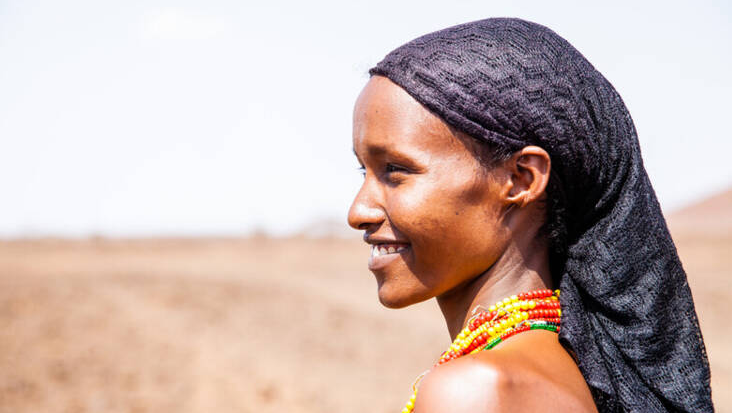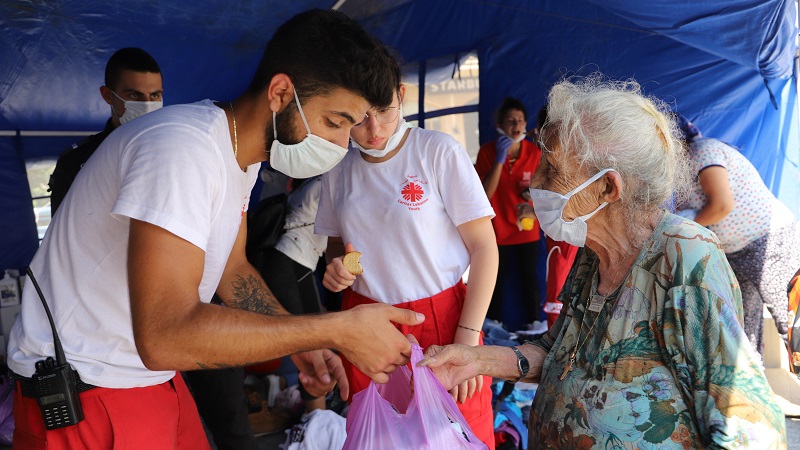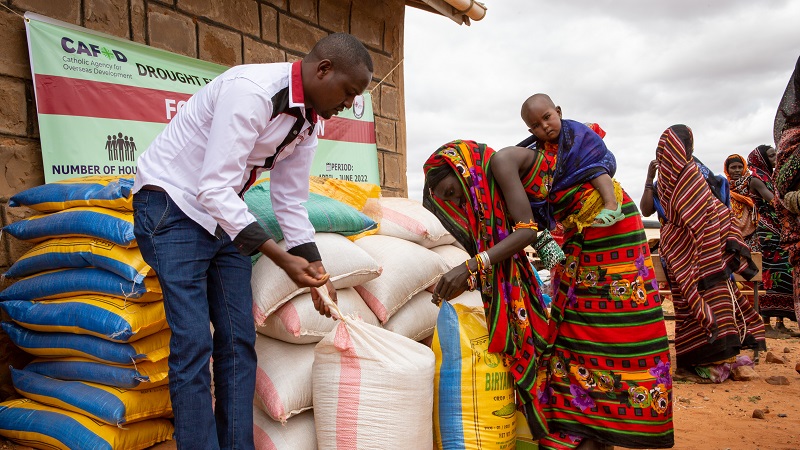How schools can support CAFOD’s World Food Crisis Appeal this Harvest

At CAFOD, we are always bowled over by the generosity of Catholic schools when an emergency strikes anywhere in the world. From a typhoon in the Philippines to refugee crises caused by conflict in Syria, South Sudan or more recently in Ukraine, schools are quick to respond.
Rapid response is vital
And this quick response is vitally important. When people, especially the most vulnerable such as children or the elderly, are homeless, without food or clean water, at risk of disease and often traumatised by a disaster, a rapid response is essential to preserve lives and to let our sisters and brothers know that we are standing with them when they need it most.
The quick supply of essentials also allows people space to think about their way ahead. And by being part of Caritas International – the Catholic Church’s humanitarian network and one of the largest in the world – CAFOD can support local experts already there to help communities as they begin to build a better future.
A different type of emergency
But the current World Food Crisis is a very different type of emergency. It is caused by multiple factors. It was not inevitable. And it will not be quickly solved.
In the UK and around the world, food prices are soaring. In the media, this is often blamed on the conflict in Ukraine making food grown there less available and driving up the price of fuel, but there are other factors. Climate change, the Covid pandemic, a food system that disadvantages small-scale food producers and political inaction have all played their part in creating a situation where many families do not know where their next meal is coming from.

We have resources to help students understand CAFOD’s response in any emergency, and to understand the current crisis in particular.
Explore our resources to help students understand CAFOD’s emergency work
East Africa
In some parts of the world, the situation is stark.
For example, in Kenya, Ethiopia and South Sudan, 20 million people are struggling to survive.
In nomadic communities that depend on herds of camels and goats for their livelihood, an infestation of locusts and successive failed rains leading to years of drought have turned once-green pastures into rocky, dry ground. Livestock have died in their thousands and communities have been left with almost nothing.
Hardworking communities
This was not the fault of these communities. They lived in harmony with the land and did little to cause the climate crisis. They worked hard to care for their livestock and build a future for their families.
Some had been working with CAFOD-supported experts in water management, preparing water storage to capture water in the rainy seasons. And, where these measures had been taken, communities were cushioned in the first few weeks of the current drought.
But the drought has gone on too long now. And having so many other factors – locusts, global food prices, the covid pandemic – all impacting at the same time, has pushed communities to the edge and threatens to wipe out all their hard work.
Support our World Food Crisis Appeal this Harvest

That’s why, this Harvest, CAFOD is asking schools to fundraise for our World Food Crisis Appeal.
Explore our downloadable fundraising resources
We are providing the usual resources – assemblies, films and posters – to help your fundraising efforts, as well as fundraising tools to download and/or to order.
Order fundraising tools from our shop
Thank you for supporting our global family.